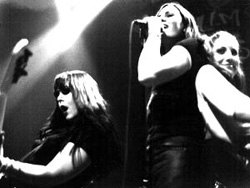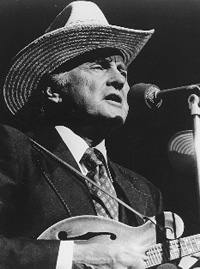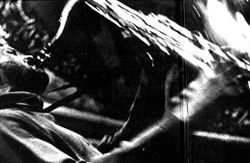June 28, 1999
CitySearch Music |
 |
| by Tanya L. Edwards, Steven Lighty & Elias Haslanger
|
| |
 The Donnas
The Donnas
"Get Skintight"
(Lookout)
With the release of "Get Skintight," the Donnas take their rightful place as one of the best currently functioning rawk bands in the world. The foursome, all known as "Donna," doesn't waste time musing on philosophy, literature, or making the world a better place. They've got more important things to worry about: tight pants, boys that don't call, and doing donuts on the neighbors' lawn.
"Get Skintight" has more in common sonically with the Runaways than current so-called girl-rock bands like Hole. That the Donnas are women is irrelevant in the face of their growth as musicians. While the last album was great fun, it's a thrill listening to how much better the Donnas play their instruments this time around. While they've always been great live, this record sounds less like a gimmick because the Donnas sound more like a band.
Producers Jeff and Steve McDonald (of Redd Kross and Spirit of '76 fame) used a light hand, polishing the Donnas "party-action" sound without detracting from their raw power. This album belongs in the glove compartment of a big, bad American car, sandwiched between "Appetite for Destruction" and "Rock and Roll High School." Unlike their debut release, "American Teenage Rock 'N' Roll Machine," the Donnas penned all of the songs on this album themselves, excepting a cover of "Too Fast for Love" that manages to make Motley Crue sound cool for the first time in years, possibly ever. They've done themselves proud, and with lyrics such as "You thought I would be broken-hearted/Maybe I would be if you weren't so retarded," from "I Didn't Like You Anyway," who's going to argue?—Tanya L. Edwards

|
|
|
|
Bill Monroe
"Live from Mountain Stages"
(Blue Plate Music)
 Bill Monroe liked to work hard on his Kentucky farm, play dirty sandlot baseball, chase women, and engage in displays of strength—he once lifted his entire band on his shoulders for a dare. But, rather than a career in professional wrestling or the circus, Bill Monroe found fame for pickin' his Gibson mandolin and singing in his "high lonesome" tenor. It can be said that he is the only artist who's been virtually solely responsible for the creation of a genre of music: bluegrass.
Bill Monroe liked to work hard on his Kentucky farm, play dirty sandlot baseball, chase women, and engage in displays of strength—he once lifted his entire band on his shoulders for a dare. But, rather than a career in professional wrestling or the circus, Bill Monroe found fame for pickin' his Gibson mandolin and singing in his "high lonesome" tenor. It can be said that he is the only artist who's been virtually solely responsible for the creation of a genre of music: bluegrass.
"Live from Mountain Stage" culls many gems from the long career of Bill Monroe and his Bluegrass Boys. Yodeling his way through Jimmie Rodgers' "Mule Skinner Blues," Monroe lays into the number faster than a 17-year-old jarhead making his first trip to the whorehouse. In his soaring tenor, he wails "Good morning, Captain/Do you need another muleskinner on this new mud run," making digging trenches sound almost enjoyable.
Many of Monroe's songs are exercises in strength and endurance, but these hillbilly etudes never lack emotion and gusto. Monroe always employed the same combination of instruments with which he founded the original Bluegrass Boys in the 1930s. Aside from his own vocals and mandolin, the upright bass, acoustic guitar, fiddle, and banjo play a prevalent role on Monroe recordings, and "Live from Mountain Stage" is no exception. The musicians' mettle is tested in his most famous number, "Blue Moon of Kentucky."
Monroe introduces the tune as "the official state song of Kentucky," and starts it off in the traditional waltz style in which it was first recorded. The band then compliments—but does not concede to—the 4/4 version popularized by Elvis Presley. Each Bluegrass Boy solos adeptly at an uproarious tempo, but Monroe's lightning mandolin playing and lilting voice carry the song. "Live from Mountain Stage" offers more proof of Bill Monroe's status as America's greatest backwoods singer.—Steven Lighty

Pharoah Sanders
"Save Our Children"
(Verve)
 Pharoah Sanders first came to public attention through his mid-'60s collaborations with John Coltrane. He performed with the master on records like "Ascension," "Meditations," and "Expressions." Since then, he has been known as an adventurous musician who is always searching for new ways to express himself. Sanders' latest release, "Save Our Children," is a tour de force of self-expression. His lyrical tone is unsurpassed, immediately recognizable as one of the most beautiful saxophone sounds around today. Pharoah Sanders first came to public attention through his mid-'60s collaborations with John Coltrane. He performed with the master on records like "Ascension," "Meditations," and "Expressions." Since then, he has been known as an adventurous musician who is always searching for new ways to express himself. Sanders' latest release, "Save Our Children," is a tour de force of self-expression. His lyrical tone is unsurpassed, immediately recognizable as one of the most beautiful saxophone sounds around today.
For this effort, Sanders has surrounded himself with an eclectic mix of musicians. Reflecting a broad range of African and Middle Eastern themes, "Save Our Children" includes contributions from William Henderson (piano, harmonium), Bernie Worrell (keyboards), Tony Cedras (harmonium), Jeff Bova (synthesizers, programming), Zakir Hussain (tablas, wooden box, mbira), Trilok Gurtu (drums, tablas, percussion), Abdou Mboup (talking drum, voice), and Abiodun Oyewole and Asante (voices). The result is a fascinating musical tapestry exploring a variety of otherworldly sounds that must be heard to be believed.
Produced by Bill Laswell, the album organically fuses the traditional sounds of the tabla and acoustic bass with the less-conventional sounds of the synthesizer and computer in a way that never seems forced. Reggae, funk, and soul are major groove influences that fit very well with the Middle Eastern/African harmonies and melodies. Above the eclectic mix of sounds, Sanders' saxophone soars with a line that's both utterly simple and remarkably beautiful. Highlights from the disc include the cross-cultural title number, and the extended track, "My Jewels of Love," which features the incredible tabla of Zakir Hussain. "Save Our Children" is remarkable in its scope and concept, casting the listener into a fascinating realm of rhythm and melody.—Elias Haslanger
 Send feedback here.
Send feedback here.
|
|
|
